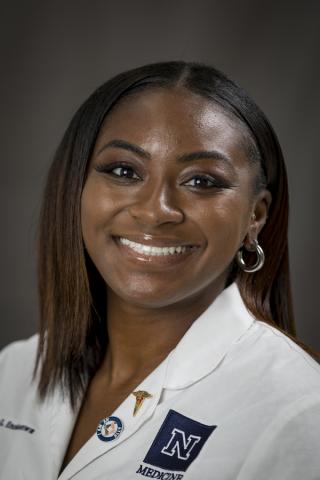Highlighting Skin of Color This Black History Month
By Maebob Enokenwa

February is Black History Month! It is the time of year that we spotlight the impact Black people have had in this country’s history.

February is Black History Month! It is the time of year that we spotlight the impact Black people have had in this country’s history.
It’s National Pizza Day (February 9), so rather than diving into our planned meal—sharing why lots of fruits and veggies are great nutrition—we’re calling for takeout, so to speak.
Pizza is one of those dishes that is endlessly customizable and, for many people, a big slice of comfort. It’s also pretty quick to prepare with store-bought crust or quick to order. Some versions, however, are healthier than others.
Sometimes it seems like sun safety is a bit like flossing: you have to be reminded every six months or so when you’re younger, and when you’re older you wish you’d practiced it more. Yeah, we know.
We’ll be honest. Cancer prevention, like flossing, isn’t sexy. The results, however, are. Who doesn't want to have youthful skin and a great smile when they're 60, 70, or 80 years old?
The key to promoting skin cancer prevention is education, education, and education.
That’s a line pulled directly from our 2021-2025 Nevada Cancer Plan in the section on health disparities. The “however” follows the fact that whites are more likely to get cancer. The “however” is the lead-in to what we know: cancer disparities—health disparities in general--exist in Nevada for Blacks.
Today is “Inspire Your Heart With Art” Day, a great time to share information about how art therapy can play a role in cancer rehabilitation and healing—whether it’s physical, mental, or spiritual.
Art therapy is more than simple arts and crafts, although those activities have their place a cancer survivor’s life and are certainly valuable as a hobby or activity. Studies have shown that these types of activities can improve mood, aid in relaxation, and provide distraction from illness.
February is National Cancer Prevention Month, and usually we’d use this space to share the little list of reminders of what you can do personally to prevent cancer. You know, things like wearing sunscreen, avoiding tobacco, and getting plenty of activity and healthy foods.
Join University of Nevada Reno School of Medicine for the next Diversity Health Series featuring Holly Figueroa discussing considerations in caring for American Indian patients. In this session, tribal history, tribal cultural awareness and cultural considerations when delivering service is discussed.
I first heard my grandpa called Larry at his funeral. It made sense; his name was Lawrence. I was in my first year of college, and that was the first time I really recognized my grandpa as more than husband, dad, grandpa. He was a friend to so many people, and the stories and memories that his friends shared made me miss him so much more.
Exciting progress has been made over the first year of the five-year lifespan of our 2021-2025 Nevada Cancer Plan. This week, our partners at the State of Nevada Division of Public and Behavioral Health completed the Year 1 Evaluation Report for the cancer plan, looking at progress made both on quantitative measures--the objective indicators--and quantitative measures--the strategies.
Have you tested your home or business for radon? Have you even heard of radon?
If you said yes, awesome! We’re glad you’ve taken those steps and hope you’ll share with others the importance of testing for radon. If you answered no, read on.
Let’s start with a quick overview of what radon is and why we’re talking about it here, on a cancer blog.